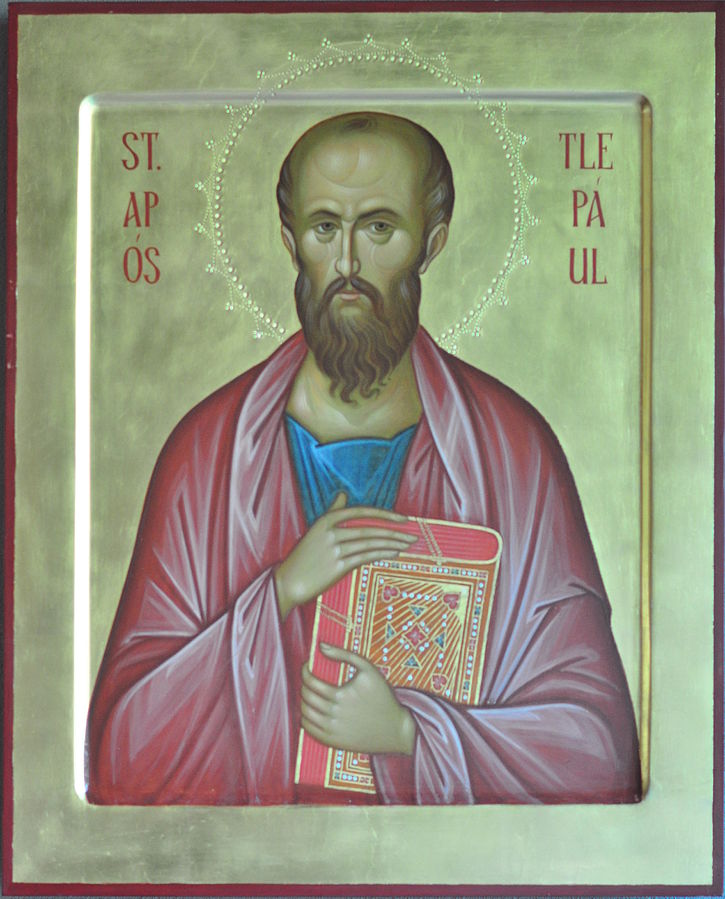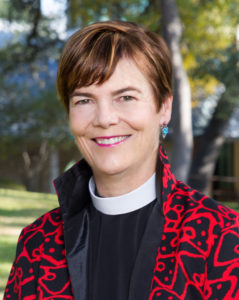
For I want you to know, brothers and sisters, that the gospel that was proclaimed by me is not of human origin; for I did not receive it from a human source, nor was I taught it, but I received it through a revelation of Jesus Christ.
On the first day of the new semester, we celebrated the Conversion of St. Paul, an event that becomes a prototype for Christian theology and storytelling. Paul changed from persecutor to evangelist, from enemy to advocate, and his transformation was a sign of God’s power:
The one who formerly was persecuting us is now proclaiming the faith he once tried to destroy.” And they glorified God because of me.
We know that Paul is not converting to a new religion – he is not converting to Christianity-
He is called not to reject Judaism, but he is called to prophesy and evangelize Jesus as Messiah, AND that God has redefined God’s people and extended God’s reach to the Gentiles, who in the former story, were infidels, sinners, those without worth.[1]
.
The conversion happens because of an apocalypsis of the risen Christ, a vision that provokes a call to a transvaluation of all values and belief systems.[2]
This conversation is radical reorientation of a person, AND the good news of death and resurrection of Jesus is a radical redefinition of the way the world is arranged/organized:
“There is no longer Jew or Greek, slave or free, male and female.”
This is Individual conversion AND conversion of the social world.
Now that baptismal claim of the abolition of privilege and the power that came with it has been parsed, quibbled over, footnoted, argued about, vigorously contested, in word and deed over the centuries of Christianity.
“Well maybe it’s true In spirit ‘yes,’ but in flesh ‘no.'”
“Well it’s true later, but now ‘no.'”
“Well maybe ‘Jew and Greek’ is ok, but ‘slave or free?’ – ‘no,’ and “male and female?’ ‘No way”…. etc. etc. etc.
The backlash against this radical creed happens even in the New Testament writings themselves.
Christianity is still living amid contestations of the meaning of equality in Christ.
At this moment Christian history we are in the midst of a conversion of the world and an abolition of privilege. And the privilege at issue and the power that goes with it is the privilege of being White.
“What does Paul’s conversation tell us about conversion we are in the midst of as we see the dynamics of racism in the history of the country in a new way?
Who do I mean by “we”? I speak as a White person, but I dare to say that the conversion happens for Black people as they process and cast off internalized oppression they have lived with for generations and put on new freedom and agency.
This process of conversion has different pieces, all happening together. “Knowing” is a piece of it – raising of consciousness, something you can do by reading books, taking a course, engaging in a curriculum – Sacred Ground – and you start to understand things differently.
“Doing” is a piece of it – it’s call to action – to fix things, hire someone, develop a program, to require training, to display art made by diverse people, to recite poetry, redecorate spaces, raise scholarship money for students of color, provide endowments for HBCUs.
And “Being” – being in relationship, listening, experiencing rage, resentment, and praying to be changed. A change in being comes by an apocalypsis of the risen Christ, by being baptized into that vision of God’s righteousness and extravagant love, as that water pours over you.
Yes, it’s an individual effort, an individual dynamic, but even more it’s a movement – a corporate missionary movement of the good news, a critical mass, a majority, a shift in consciousness and caring of a community of people.
Will Seminary of the Southwest do this work of conversion? We have said we will.
Will the Episcopal Church do this? This is Catherine Meeks’ question to the faculty.
Will the Christian Church do this? (Witness division among evangelical Christians on this matter.}
Will the nation do this? Make this shift? Well, the political process is hashing and thrashing this out right now.
On the feast of the Conversion of St Paul, let us look upon the potential miracle before us:
A church that formerly legitimated slavery and reinforced segregation and white supremacy will remember, will renounce, and will repent. It will now deploy God’s power and love and forgiveness to undo it, to radically reorient, to envision humanity not as divided between the supreme and the subordinate, but all made in the image of God.
What do I know about conversion from my experience and from Christian wisdom is this: that it happens within but it is not confined to within. It’s daily. It requires practice.. It requires company and community. It requires grace. I think that’s what that means when Paul says it’s not from human origin or from a human source, but from apocalypsis of the risen Christ.
It reminds me of one of the most vivid parts for me of the ordination service – after the ordinand has promised to do and be so many extraordinary things, and the bishop says,
“May the Lord who has given you the will to do these things, give you the grace and power to perform them!” That’s what I pray for this community.
And finally, there’s going to be backlash; there’s going to be struggle over such a radical baptismal prayer:
As many of you as were baptized into Christ have clothed yourselves with Christ. There is no longer Jew or Greek, there is no longer slave or free, there is no longer male and female; for all of you are one in Christ Jesus.
This work is unfinished. God is not done. Today we are invited into ongoing, world reorienting, life giving conversion.
[1] Krister Stendahl, Paul Among Jews and Gentiles.
[2] Brigitta Kahl, “Galatians,” Fortress Commentary on the New Testament.

The Very Rev. Cynthia Briggs Kittredge, ThD, is dean and president of Seminary of the Southwest. The focus of Dean Kittredge’s leadership is the formation of Christian leaders in community for the vitality of the church and to advance God’s mission of reconciliation. She believes that critical engagement with scripture, tradition, and context, energized by imagination, and grounded in prayer is the center of formation for mission.
In the wider church, Dean Kittredge is a respected scholar and preacher who teaches and leads retreats on the vital intersection of scripture, spirituality, and preaching for Christian leaders. In her role as dean and president, she continues to form students at Southwest in creative and faithful approaches to biblical studies, early Christian history, Greek reading, and the embodied practice of liturgical leadership.
Dean Kittredge is the eighth dean and president of Seminary of the Southwest. She was appointed in 2013 after serving on the faculty as the Ernest J. Villavaso, Jr. Professor of New Testament and as academic dean. Committed to theological education for the church, Dean Kittredge has served as a member of the Steering Committee for Theological Education in the Anglican Communion, as Chair of the Board of the Episcopal Evangelism Society, and President of the Anglican Association of Biblical Scholars.
A biblical scholar valued by her colleagues for her insight and generous collegiality, Dean Kittredge is a contributor to The New Oxford Annotated Bible and the Women’s Bible Commentary, and the author of Conversations with Scripture: The Gospel of John and Community and Authority: The Rhetoric of Obedience in the Pauline Tradition. She co-edited The Bible in the Public Square: Reading the Signs of the Times and Walk in the Ways of Wisdom: Essays in Honor of Elisabeth Schüssler Fiorenza. She is the co-editor of the Fortress Commentary on the Bible: The New Testament (2014).
Fascinated by the interplay of intellect and imagination in the interpretation of scripture, she wrote A Lot of the Way Trees Were Walking: Poems from the Gospel of Mark (Wipf & Stock, 2015).
Prior to joining the seminary faculty in 1999, Dean Kittredge taught at Harvard University and the College of the Holy Cross. She serves as assisting priest at The Episcopal Church of the Good Shepherd in Austin.
She is married to Frank D. Kittredge, Jr. and they have three grown children.

